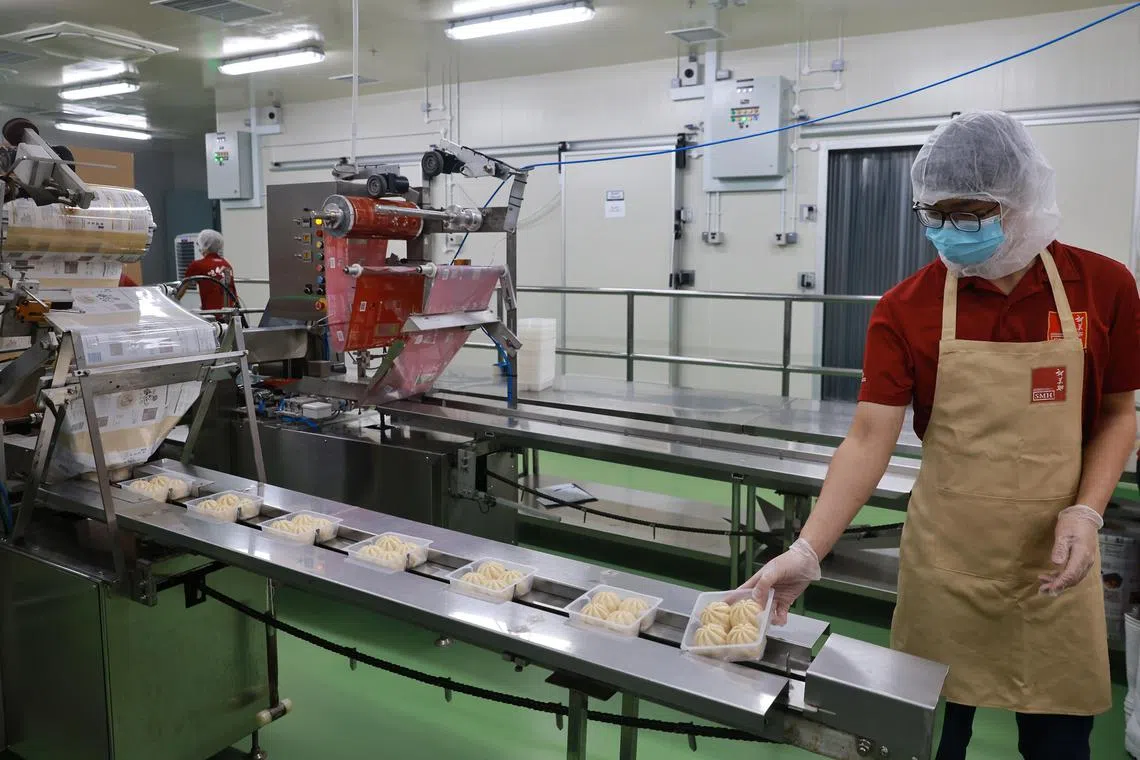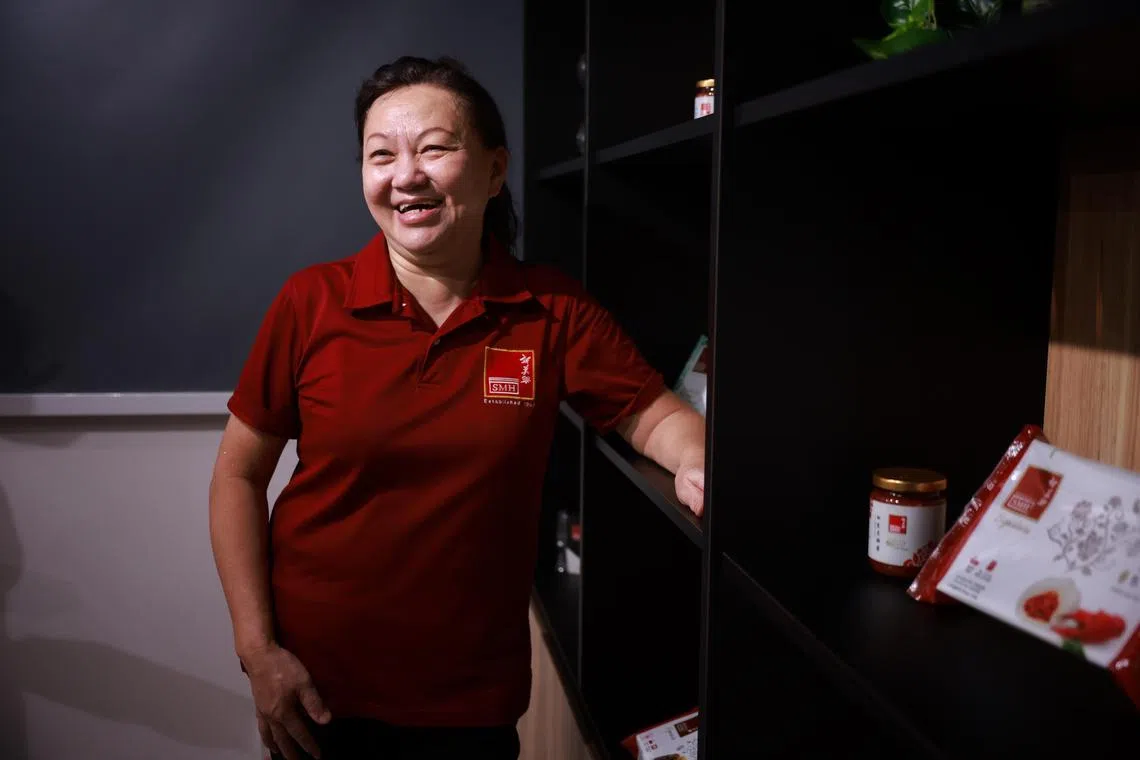Over 2,500 jobs to be created in S’pore food manufacturing sector in next 5 years
Sign up now: Get ST's newsletters delivered to your inbox

There are eight new roles such as food biotechnologist, sustainability engineer and automation engineer.
PHOTO: ST FILE
SINGAPORE – More than 2,500 jobs will be created in the food manufacturing industry in the next five years.
There will be eight new roles, including food biotechnologist, sustainability engineer and automation engineer.
This is part of the Jobs Transformation Map (JTM) for the sector, which will enable employers to equip their workforce with the necessary skills and offer new job opportunities in tandem with transformation efforts.
It was unveiled together with the refreshed Food Manufacturing Industry Transformation Map 2025,
The JTM was developed by Enterprise Singapore, the Ministry of Manpower and Workforce Singapore (WSG).
Identifying the trends and impact on key jobs over the next three to five years, it recommends strategies that companies can adopt to upgrade their talent pool to support business transformation.
Companies cannot revamp themselves unless their workers can support the new business models and job roles, said Dr Tan at the launch.
“Having skilled workers is what enables a business to be able to transform. At the same time, when businesses transform, workers will be more motivated to go for reskilling and upskilling to seize new opportunities,” he added.
Within the next five years, close to a quarter of the 22 job roles studied in the JTM will undergo some change and require redesign for enhanced scope or responsibilities.
Some new skills needed in the future include emerging food technology. It involves reviewing new developments to see how they can be woven into product innovation and development.
Another new skill that will be needed is customer behaviour analysis, carried out by devising analysis tools and approaches, as well as tapping insights to drive innovation and formulation of new products.
The remaining job roles, while largely unchanged, will still require some upskilling to ensure workers keep pace as the sector transforms and adopts more automation and digitalisation.
Sin Mui Heng Food Industries has retrained and redeployed its staff to take on higher value-added tasks to improve productivity.
For example, four employees were needed previously to operate a bun production line. But when the company upgraded its machine at the new factory to operate the production line in June 2022, two employees were redeployed.
One of the redeployed employees is Madam Ong May Lee, who has been working in the company for 18 years on the bun manufacturing line, manually picking up and placing buns on food trays.
The 63-year-old took up courses on hygiene and food safety in October and November, and she is now a supervisor who helps to handle food safety.

Madam Ong May Lee, a supervisor at Sin Mui Heng Food Industries, is one of the company’s redeployed employees.
ST PHOTO: JASON QUAH
Said Madam Ong: “This is good for me because I get to learn new skills and improve myself at the workplace.”
Government agencies such as EnterpriseSG, WSG and SkillsFuture Singapore, along with partners such as the National Trades Union Congress, will continue to support more companies to redesign jobs and reskill and upskill workers for the roles identified in the JTM.
Dr Tan encouraged employers to consider redesigning the jobs within their firms and sectors to increase the attractiveness of each role to new and existing talent.
“This will also help to raise productivity, to motivate workers to train, and will enable them to deliver greater value for the business with more value-added tasks,” said the minister.


